We remember Kenneth Grange, the British industrial designer, who has died aged 95
Kenneth Grange was a colossus of post-war design. With a career spanning six decades, his mission for improvement touched everything from trains to fountain pens, taxis to toothbrushes
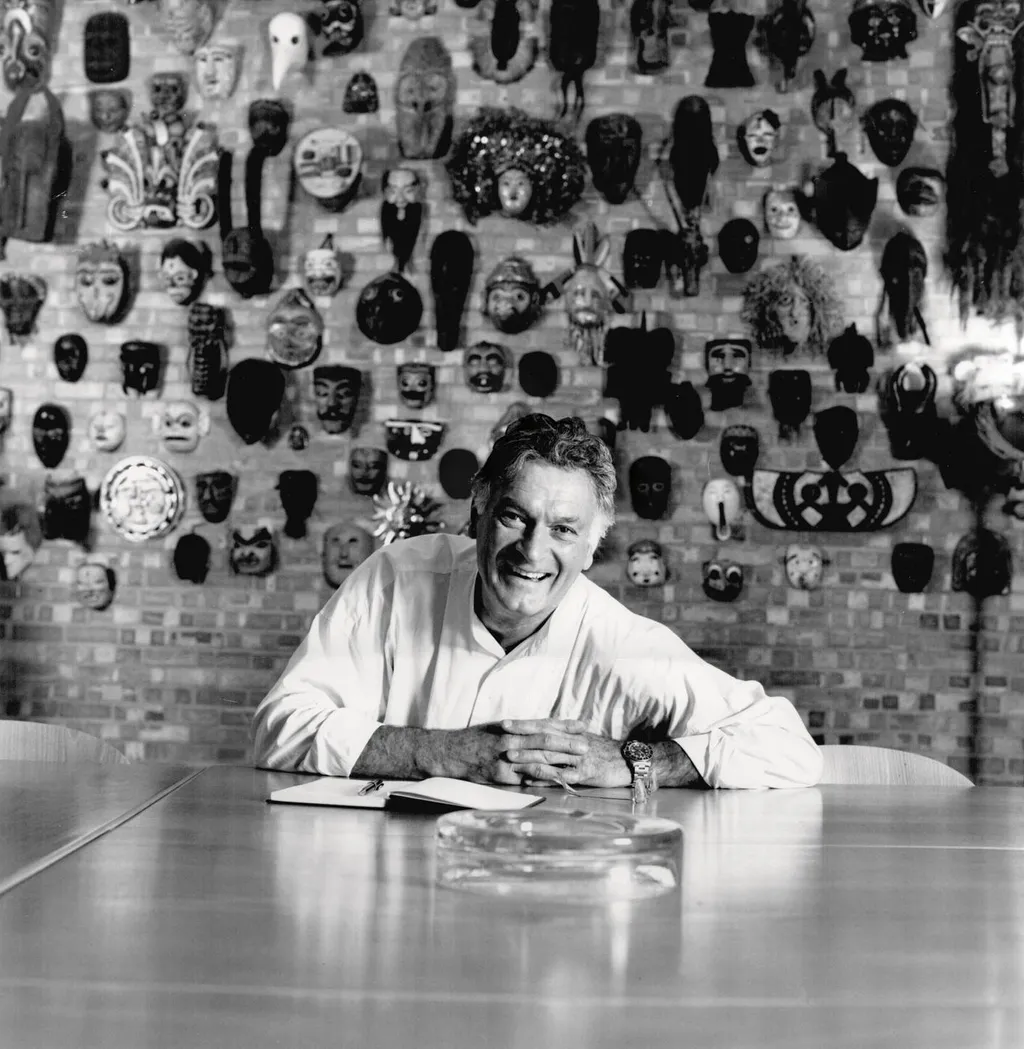

Jonathan Bell
The genuine heroes of modern design are few and far between. Yet Sir Kenneth Grange, whose death was announced yesterday, certainly qualifies. Grange was a British industrial designer whose work and influence spanned genres and generations, helping define the modern high street as well as the profession itself.

A scale model crafted by Grange’s team in his workshop at Pentagram, highlighting the streamlined bodywork of the London Taxi that he designed. Grange spent endless hours working on a new solution for the for-hire sign that could be seen more easily in sunlight.
Born in London's East End in 1929, Grange’s childhood was shaped by vivid memories of the Second World War, as well as a talent for drawing that led him to study art at the Willesden College of Technology. This was followed by National Service and then a first professional role as an architectural draughtsman that saw him work on exhibition stands and graphics for the Sports and Homes pavilions at the Festival of Britain in 1951.

The Cub 3 sewing machine, with its fold-out surfaces and a front segment also doubling as storage for accessories.
Grange designed the Kodak Pavilion for the 1958 Brussels World Fair, and so began a 30-year collaborative relationship with the camera manufacturer. He designed the Kodak 44A in 1959 - the first camera to use a plastic lens - and sealed his legacy with the brand thanks to the wildly popular Instamatic 33 in 1970. Similarly beautiful, modern British goods came thick and fast: kitchen appliances for Kenwood, pens for Parker, razors for Wilkinson Sword, irons for Morphy Richards, lighters for Ronson. At some point in the 1970s, if it was made in Britain and you could hold it - comfortably - in your hand, chances were Kenneth Grange had designed it.

Grange’s design for the Kodak Instamatic 33 series, which launched in 1968 and became an overnight sensation, rocketed Grange to new levels of design fame.
There are significant objects of daily life beyond our hands that we also have Grange to thank for: from parking metres to London taxis and the popular Type 3 redesign of the Anglepoise lamp, where Grange was design director from 2003 until his death. His largest project in scale and possibly reach was the much-loved, long-serving Intercity 125 for British Rail. In the case of the latter, unimaginably by today’s silo-ed design practices, Grange worked on the aerodynamic form, the exterior and the interior simultaneously. When the Intercity 125 went into service it was hailed as saving Britain’s railways, and was fondly referred to as ‘the journey shrinker’.

A pristine British Rail HST train set, number 254002, pictured static for a publicity photoshoot. This was the second set introduced on the East Coast Main Line between London King’s Cross, Edinburgh and Aberdeen, c. 1978.
In 1972, Grange joined Alan Fletcher, Colin Forbes, Theo Crosby and Mervyn Kurlansky to form Pentagram, bringing the disciplines of product and industrial design together with graphic identity and spatial design. With Grange’s inclusion, the pioneering partnership spread its wings beyond a design agency to become a multidisciplinary design practice. Today, Pentagram is considered one of the world’s foremost design studios. It still operates as an interdisciplinary partnership, albeit with 24 partners working from offices in London, New York, San Francisco, Austin, Texas and Berlin.

The first production model of Grange’s revised design for the Kenwood Chef, introduced to great acclaim in 1960.
Grange had a landmark retrospective show at the London Design Museum in 2011, ‘Kenneth Grange: Making Britain Modern’, designed by Jasper Morrison and James Irvine. Coinciding with a surge of widespread interest in the role and power of design, for many the exhibition served as an introduction to Grange and his extraordinary canon of work. I spent a dank January day with him in his Devon home, together with Apryl his wife, as he was busy cataloguing various prototypes and early models. He was warmth personified and keen to impress the role that luck and good fortune had played in his career. He was adamant about design education being of fundamental importance to children and not a frivolity. He joked about how we wished to be buried in a large man-shaped, moulded plywood bookcase that he had designed in the corner.

The Graphic Thought Facility-designed poster of the Design Museum’s 2011 exhibition: ’Kenneth Grange: Making Britain Modern’.
The Design Museum show heralded a wave of long overdue celebration for Grange and all that he had achieved. He was knighted in the Queen’s New Year Honours in 2013 for services to design. In 2016 he was awarded the London Design Medal for Lifetime Achievement. Lucy Johnston’s excellent monograph – Kenneth Grange: Designing the Modern World – which was released earlier in 2024, traces Grange’s early life and influences, through to the founding of his first design agency, Kenneth Grange Design, in 1958, and onwards through a career defined by variety. Five biographical chapters are followed by a chronicle of Grange’s designs that ‘shaped the modern world,’ together with sketches, prototypes and personal insights into their development.
Wallpaper* Newsletter
Receive our daily digest of inspiration, escapism and design stories from around the world direct to your inbox.
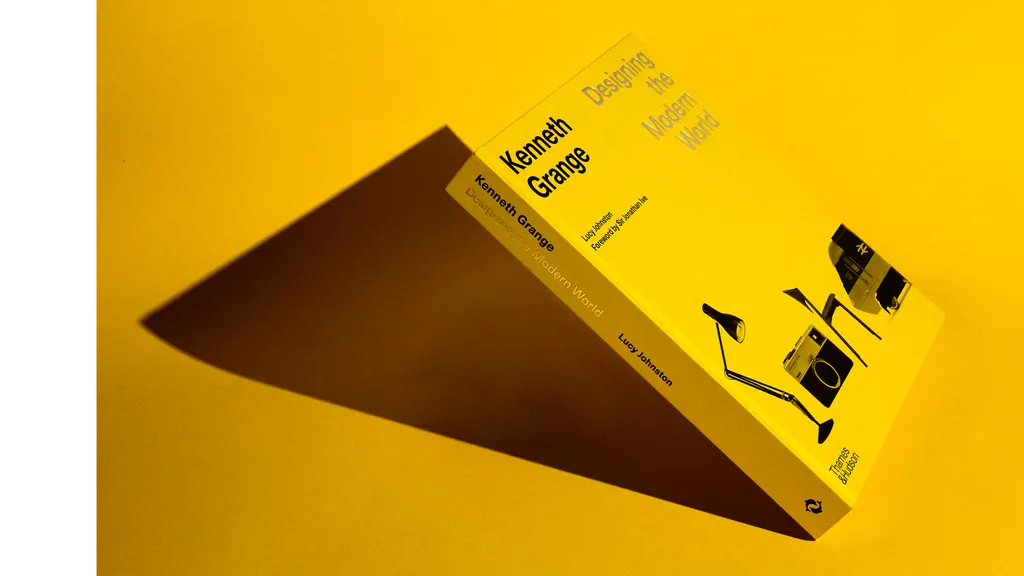
Sir Jonathan Ive contributed a foreword that further cements Grange’s reputation within the industry. Ive writes that Grange’s approach to design as a form of public service made a vivid impact on him, as well as on British visual culture in general. Grange’s archive will go on display at London’s V&A East Storehouse in 2025, shoring up his legacy for future generations.

The Anglepoise Type 75 Mini desk lamp
What I remember most vividly from my home visit was Grange’s belief in improvement, more than innovation, as the lodestar for any designer. Given the breadth of his own six-decade output, naturally he was repeatedly asked about his own ‘red thread’. What can possibly tie a moulded plastic watering can together with a high-speed train, a task lamp with a washing machine, a car with a pen, a bus shelter with a toothbrush? ‘No-one and nothing is perfect,’ he laughed. ‘Improvement is the only responsible approach one can take in design as in life.’
Kenneth Grange, Industrial Designer, July 1929 - July 2024.
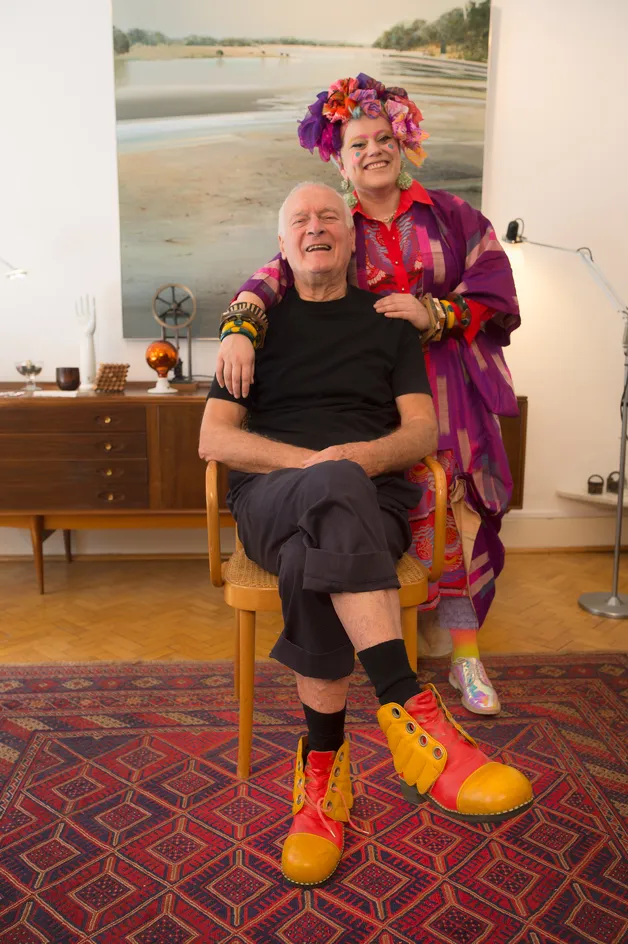
Sir Kenneth Grange and Bethan Laura Wood, both recipients of a 2016 London Design Medal, photographed at his Hampstead home

Hugo is a design critic, curator and the co-founder of Bard, a gallery in Edinburgh dedicated to Scottish design and craft. A long-serving member of the Wallpaper* family, he has also been the design editor at Monocle and the brand director at Studioilse, Ilse Crawford's multi-faceted design studio. Today, Hugo wields his pen and opinions for a broad swathe of publications and panels. He has twice curated both the Object section of MIART (the Milan Contemporary Art Fair) and the Harewood House Biennial. He consults as a strategist and writer for clients ranging from Airbnb to Vitra, Ikea to Instagram, Erdem to The Goldsmith's Company. Hugo has this year returned to the Wallpaper* fold to cover the parental leave of Rosa Bertoli as Global Design Director.
-
 All-In is the Paris-based label making full-force fashion for main character dressing
All-In is the Paris-based label making full-force fashion for main character dressingPart of our monthly Uprising series, Wallpaper* meets Benjamin Barron and Bror August Vestbø of All-In, the LVMH Prize-nominated label which bases its collections on a riotous cast of characters – real and imagined
By Orla Brennan
-
 Maserati joins forces with Giorgetti for a turbo-charged relationship
Maserati joins forces with Giorgetti for a turbo-charged relationshipAnnouncing their marriage during Milan Design Week, the brands unveiled a collection, a car and a long term commitment
By Hugo Macdonald
-
 Through an innovative new training program, Poltrona Frau aims to safeguard Italian craft
Through an innovative new training program, Poltrona Frau aims to safeguard Italian craftThe heritage furniture manufacturer is training a new generation of leather artisans
By Cristina Kiran Piotti
-
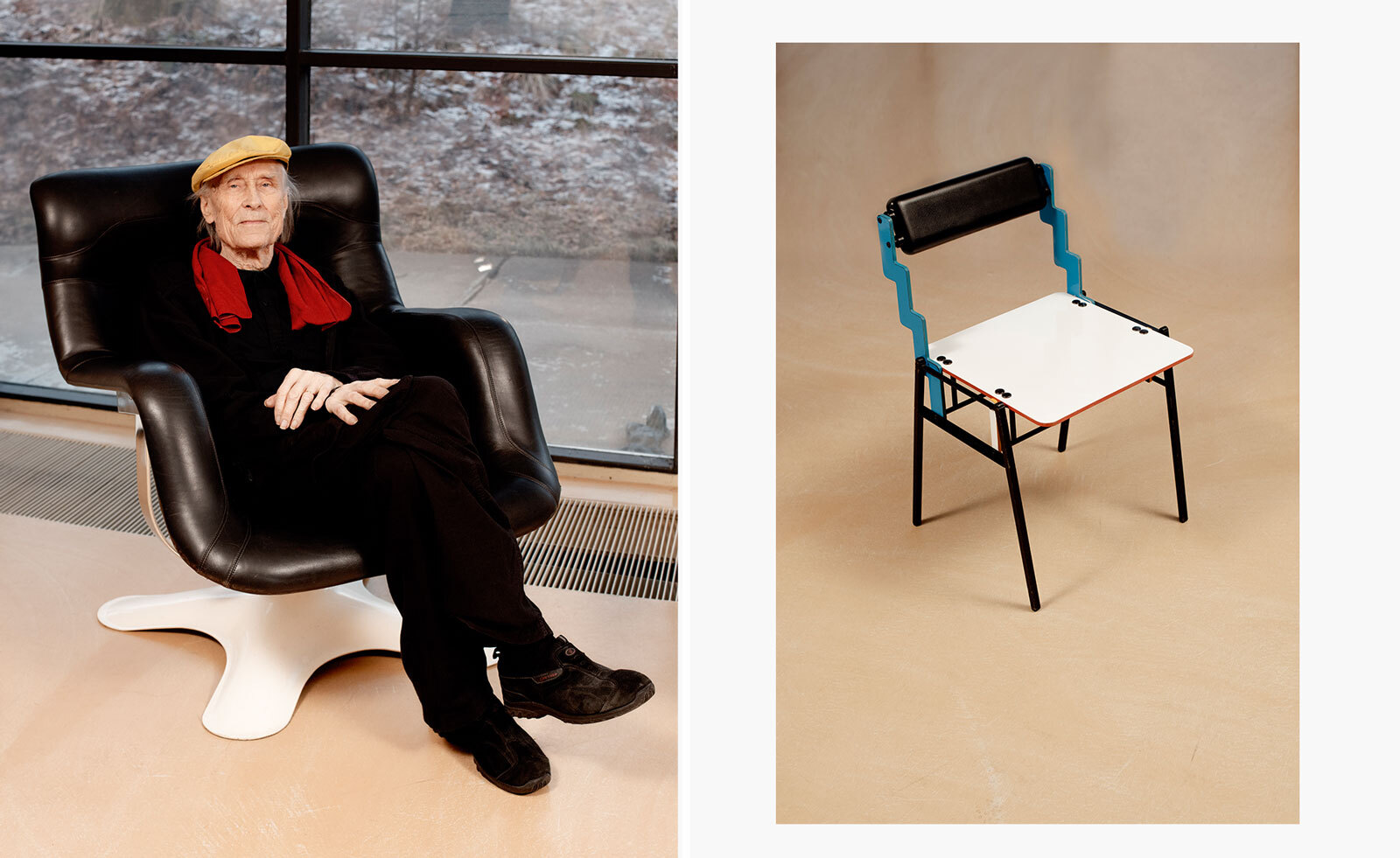 Remembering Yrjö Kukkapuro, Finnish grand master of design (1933-2025)
Remembering Yrjö Kukkapuro, Finnish grand master of design (1933-2025)Almost everyone in Finland has sat in a chair by designer Yrjö Kukkapuro, writes Wallpaper’s Emma O'Kelly, who met him at his studio in 2020 and here pays tribute to a design legend
By Emma O'Kelly
-
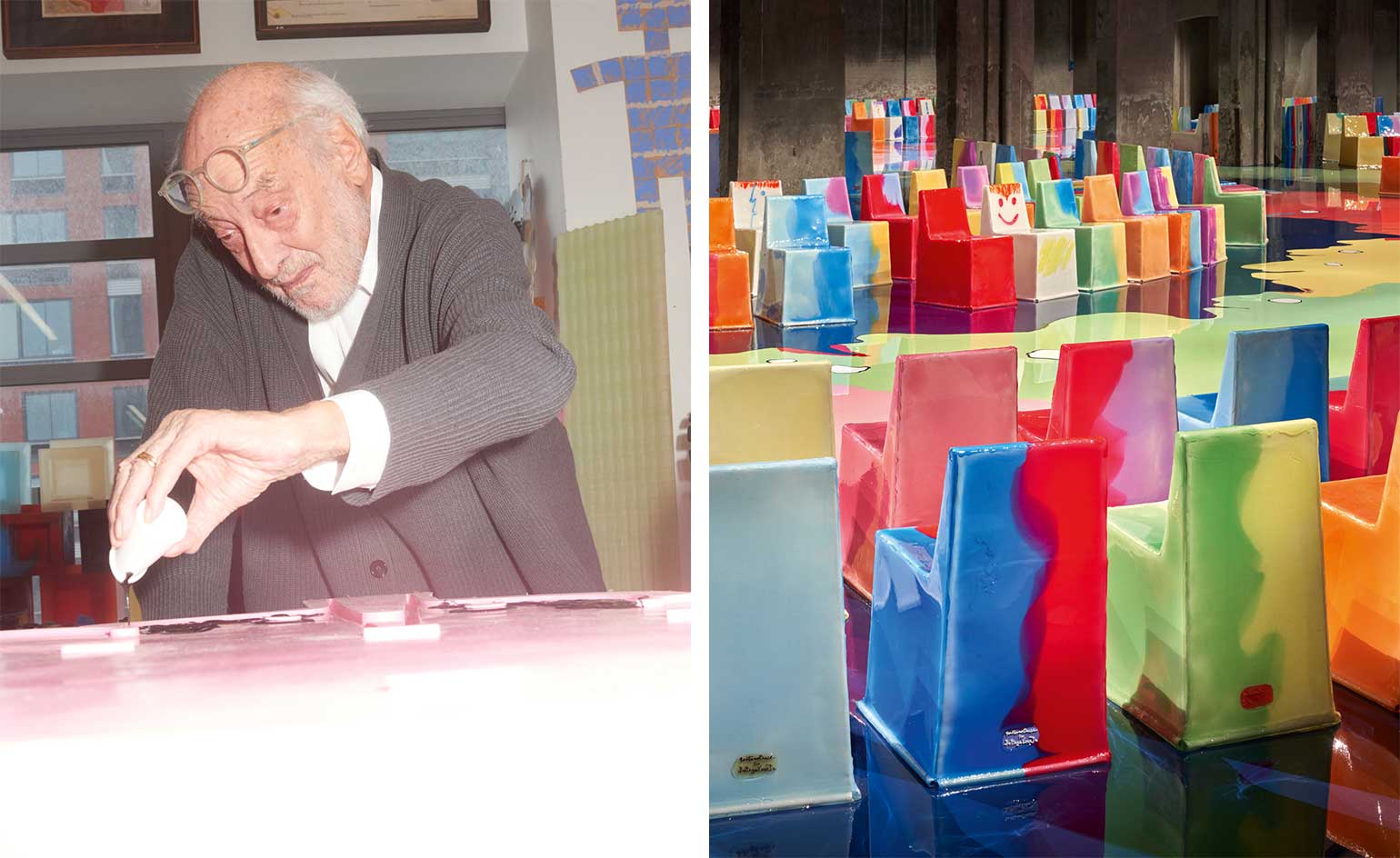 Design world mourns Gaetano Pesce (1939-2024), the ‘most radical of radicals’
Design world mourns Gaetano Pesce (1939-2024), the ‘most radical of radicals’We remember Gaetano Pesce, the rule-breaking Italian design visionary, who has died in New York aged 84
By Rosa Bertoli
-
 In memoriam: celebrating the lives and work of those we lost in 2023
In memoriam: celebrating the lives and work of those we lost in 2023We honour and remember some of the influential creatives lost during 2023, through the Wallpaper* tributes that ran throughout the year
By Rosa Bertoli
-
 In Memoriam: Maria Pergay (1930 – 2023)
In Memoriam: Maria Pergay (1930 – 2023)We remember design dame Maria Pergay, who died on 31 October 2023 aged 93
By Rosa Bertoli
-
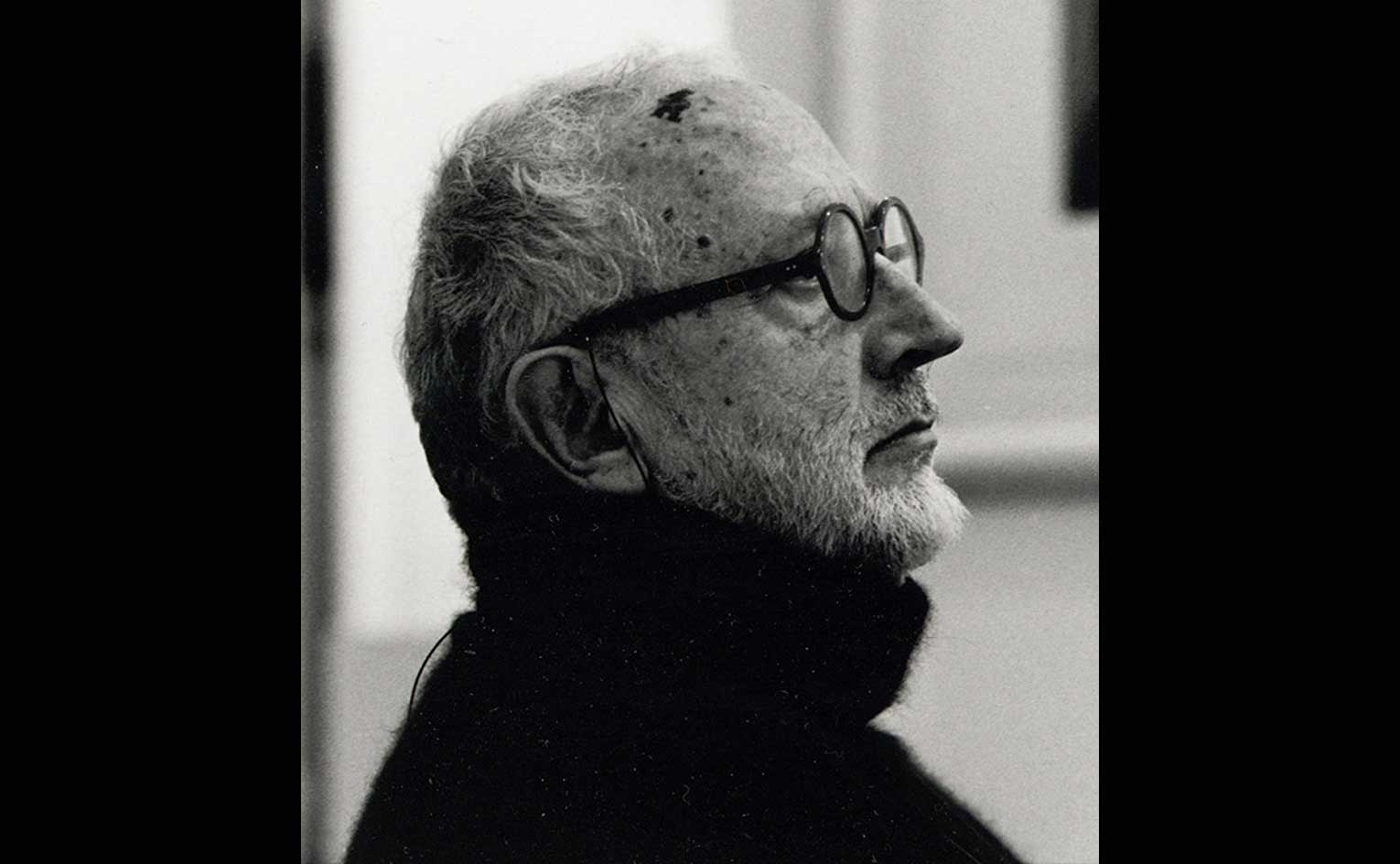 In Memoriam: Andrea Branzi (1938 – 2023)
In Memoriam: Andrea Branzi (1938 – 2023)We remember Italian design radical Andrea Branzi, who died on 9 October 2023
By Rosa Bertoli
-
 In Memoriam: Rodolfo Dordoni (1954 - 2023)
In Memoriam: Rodolfo Dordoni (1954 - 2023)We remember Italian designer and architect Rodolfo Dordoni, who died on 1 August 2023
By Rosa Bertoli
-
 In memoriam: Thomas Eyck (1964 – 2023)
In memoriam: Thomas Eyck (1964 – 2023)We remember Dutch design entrepreneur Thomas Eyck, a champion of craft, materiality and beauty who helped elevate many of the Netherlands’ contemporary design stars
By Rosa Bertoli
-
 In Memoriam: Italo Lupi (1934 – 2023)
In Memoriam: Italo Lupi (1934 – 2023)We remember Italian creative Italo Lupi: an architect and graphic designer who left his mark on brands and institutions in Italy and globally
By Rosa Bertoli